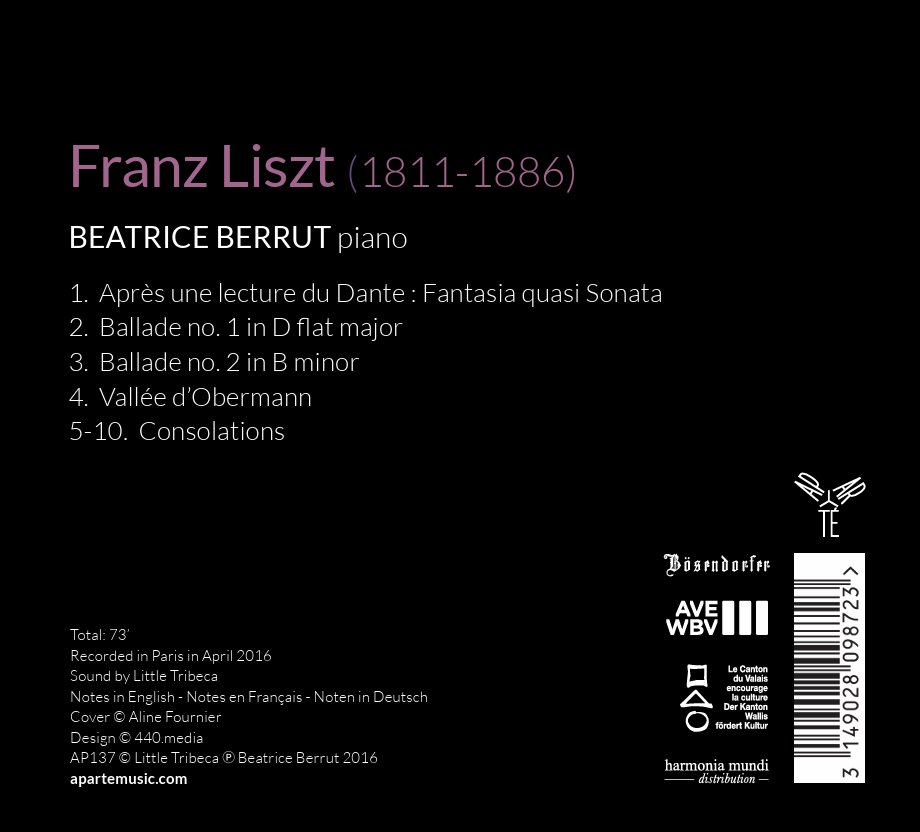Beatrice Berrut
AP137 - 1CD - 73' - Jan 20, 2017
In his life as in his work, Liszt's music represents a stylised struggle between good and evil; light and darkness. His writing, which may at times be described as Manichean, nevertheless explores all the pains and joys that a human soul can experience and creates an unbreakable thread between feelings that are very remote from each other. Liszt s metanoia: his courageous path towards light and serenity, provides a touching and liberating example of a man who assumed his consuming passions and sublimated them in the works he created. An intimate lecture of Liszt's soul by Swiss pianist Béatrice Berrut, recorded in Paris by Nicolas Bartholomée on a Bösendorfer piano in April 2016.
FRANZ LISZT
1. Après une lecture du Dante : Fantasia quasi Sonata S. 161/7 17:30 from, extrait de, von Les Années de pèlerinage, deuxième année : Italie, S. 161
2. Ballade no. 1 in D flat major S. 170 7:48 N°1 en ré bémol majeur ; Nr. 1 Des-dur
3. Ballade no. 2 in B minor S. 171 N°2 en si mineur ; Nr. 2 h-moll
4. Vallée d’Obermann S. 160/6 from, extrait de, von Les Années de pèlerinage, première année : Suisse, S. 160
Consolations S. 172
5. I. Andante con moto
6. II. Un poco più mosso
7. III. Lento placido
8. IV. Quasi adagio
9. V. Andantino
10. VI. Allegretto sempre cantabile



